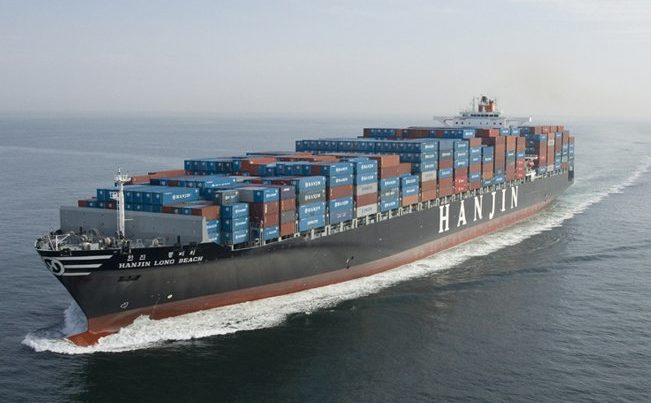‘Political blundering over economic sense’: Hanjin’s demise attacked

The Korean government bungled the collapse of Hanjin Shipping and should have done away with Hyundai Merchant Marine (HMM) instead, argued Tan Hua Joo, an analyst at Alphaliner, at today’s Asian Logistics and Maritime Conference in Hong Kong.
Hanjin’s demise was “political blundering taking place over economic sense” Tan maintained. He said it was a mistake to allow HMM to survive and let Hanjin fail. Hanjin was a stronger company than HMM with a foot in THE Alliance, Tan said, whereas HMM has yet to officially join any liner alliance.
“Ego prevailed over common sense,” Tan said.
Both HMM and Hanjin went through massive restructuring earlier this year, with Hanjin going bankrupt at the end of August, the largest bankruptcy in liner shipping history.
The Alphaliner analyst felt that another major bankruptcy for the container market is not on the cards in the near term.
Tan said that the chase for market share is the single biggest threat to the container sector at the moment.
The consolidation seen in the sector has reached “unprecedented” levels, Tan said, whereby the top 10 carriers will control nearly three quarters of containerships by the end of next year.
The threat of continued losses will drive more consolidation, Tan suggested, saying that the lines most at risk now are Hamburg Sud, OOCL, Zim and HMM.
The gap between the top 7 players – including the soon to be merged trio of Japanese liners – and the rest of the market is going to become too large and pose a significant challenge for medium sized companies to run effectively in the future, Tan argued.
He also warned that between this quarter and the end of 2017 there are 114 ships of 9,000 teu plus – just shy of 1.6m teu – coming out of shipyards in Asia, adding a net growth to the hard hit liner sector of 5%.
Steve Saxon, an expert partner at McKinsey & Company, concurred with much of Tan’s presentations telling delegates in Hong Kong, “There will be mergers, bankruptcies and consolidation – there just has to be.”
Tim Smith, chairman of Maersk China, said that the consolidation was a cause for optimism. “The unprecedented wave of consolidation,” Smith said, “may give a platform for a more stable future.”
The Asian Logistics and Maritime Conference closes tomorrow.
